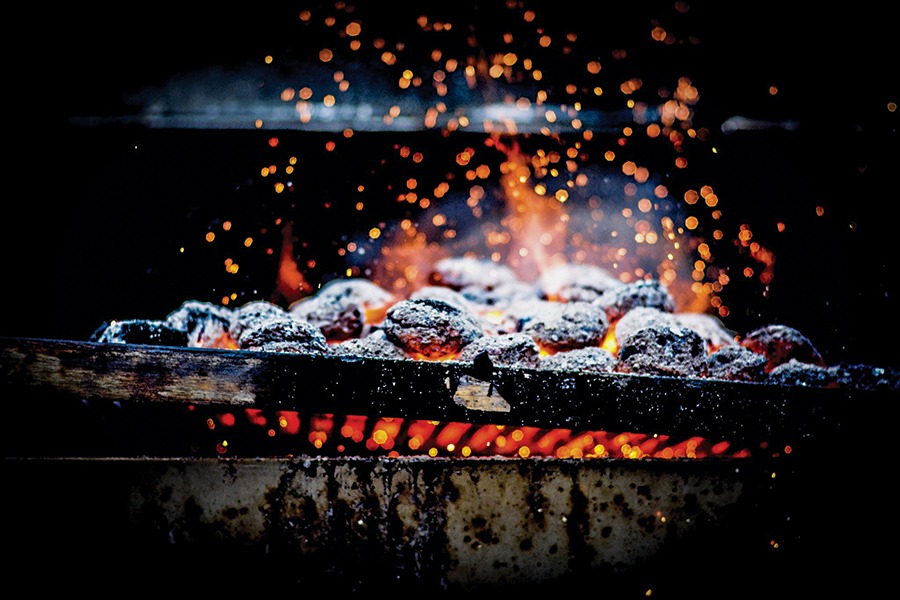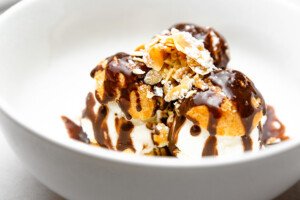Is There an Iconic New England Method of Grilling?
Andy Husbands, chef and owner of the Smoke Shop, weighs in.
Welcome to “One Last Question,” a series where research editor Matthew Reed Baker tackles your most Bostonian conundrums. Have a question? Email him at onelastquestion@bostonmagazine.com.

Photo by Matthias Genterczewsky/eyeem/Getty images
Question:
As the weather gets warmer, I’m excited to finally put the grill back on my deck and get cooking—which got me thinking about all of the different barbecue techniques around the country. Texans, for instance, use mesquite for smoky flavor, while Tennesseans use hickory. Is there an iconic New England method of grilling, and what would you use: wood, charcoal, or propane? —K.P., Randolph
Answer:
Congrats on your springtime grill unveiling, K.P., and you know what? I’m going to congratulate myself, too, because I’ll also be busting mine out, whether we’re stuck at home this month or not. From my personal experience growing up in New England, I can tell you that the preferred grilling method in the 1970s and early ’80s was to get a really cheap hibachi, pour some Kingsford coals in it, douse said coals in too much lighter fluid, put the meat on a crusty grate, and torch it. Burgers and dogs had a mouth-feel of gritty char and a flavor profile boasting top notes of ash and hydrocarbons. Though this taste memory brings me right back to my parents’ lake cottage in central Massachusetts, it’s clearly not the best way to cook meat.
So to get the scoop on delicious—and authentically New England—grilling methods, I consulted someone who knows his way around a pit of coals: Andy Husbands, chef-owner of the Smoke Shop. When it comes to technique, the barbecue guru eschews propane for charcoal infused with wood that he sources locally. “I use a hard wood like oak, which we have in abundance,” Husbands says. “It’s a light smoke that burns long and hot. Any of the area’s fruit woods are phenomenal…such as cherry, apple, and peach.” For grilling fish, meanwhile, Husbands likes alder wood.
As for what to cook with said technique, Husbands speaks lovingly of steak tips served with Ken’s “Creamy Italian” salad dressing, a local classic. But at the end of the day, he believes the clambake is the best representation of New England’s grilling heritage. The traditional method involves digging a fire pit in the sand and heating up large stones and bushels of seaweed that cook and flavor chouriço, clams, lobster, and corn. But you’re fired up about firing up your Char-Broil in the backyard, right? Fortunately, you can replicate this feast sans beach with the recipe on page 102 of Husbands’s book Grill to Perfection, co-authored with chefs Chris Hart and Amanda Pyenson. Regardless of how you cook it, your seafood-focused meal will stay true to the region’s identity: “Long before the Pilgrims, we’ve always used what’s available out of necessity,” Husbands says. “All of these things are what the summer harvest gives us.”


